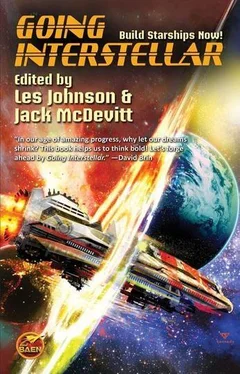Plants and animals—and humans—need a certain cycle of daylight and darkness and since we didn’t have it naturally, it had to be simulated.
My family ate an hour before nightfall, but that night we were—of course—delayed. And then mom wished to talk about the shocking news of Ciar’s arrest. I don’t know what answers I made, other than indicating how surprised I was, myself, with my father joining our dismay.
I know it was well past their normal bed time of 22:00 when they retired. I waited another hour to make sure they were asleep, because the last thing I needed—the absolute last thing—was for them to intercept me at the door and ask where I was going or why.
This felt like insanity, but it had that curious glimmer of a suspicion that there might be something in it. Just a sliver of hope, the barest of chances that there was something more in this than Ennio’s gallant and silly attempt to save his friend and rival.
By the time I made it to the meeting place, I halfway expected Ennio to be gone to his bed in the bachelors’ quarters, but he was waiting, clutching his reader.
“Right,” I said, gritting my teeth. “Come.”
* * *
“This way.”
Even on the most external of tunnels there were several layers of material between ourselves and space so there was no dangerous radiation. But we were on the outermost area accessible to humans. Beyond that was an area where only specialized crews in spacesuits were allowed to make repairs.
The space was a tunnel so narrow we had to shuffle side by side along it. To compensate for the narrowness, it was very high, seeming to climb all the way up the side of the ship, to …the top of the ship?
Of course, I had no business being here after hours, looking around for a chimera born of Ciar’s overexcited imagination, of Ennio’s gallant impulses and desire to save our errant friend.
At least, I thought, I was less likely to be caught than Ciar. I’d never been here, I saw nothing here to maintain, and so I doubted that anyone could come to do anything in here and bump into us. And of course, I wasn’t leaving clear codes behind, as Ciar had.
The problem was that there was nothing here to maintain. Just walls—not very smooth, I’ll grant you. They rarely are in the less frequently used maintenance tunnels. Occasionally there might be a protruding pipe. But that was about it.
We seemed as likely to find a computer here as to find …well, a wise old owl.
“Here,” Ennio said. “We’re supposed to stand here.” He turned into a passage so narrow we had to squeeze between the walls. The floor was solid but grimy underfoot, and the ceiling was lost somewhere in the darkness above.
“Now what?” I asked. “The wizard comes and rescues us?”
“What?” he said. Then he looked at his reader, bringing it up almost to touch his visor. “No. Look. It says we should climb up the wall, like the itsy bitsy spider.”
I looked dubiously at the wall. Okay, it wasn’t smooth. But it wasn’t really rougher than any other section of wall. Those protrusions might perhaps be enough for us to hold feet and hands as we climbed. But were they designed that way? “Are you sure we’re in the right place?”
“Yeah,” he said. Mentally he retraced our steps, as his lips moved—his face visible, pale and concentrated through the visor. “Yeah, I’m sure. I counted the steps right.”
“Okay.” I could see there was no way to get Ennio to budge from here until we climbed the wall. It was climbing down, I thought, that was going to be very hard indeed.
But climbing up was easier than I expected. The protuberances on the wall really seemed to have been placed on purpose to make our life easier.
And when we got up so far that the floor seemed imprecise and indistinguishable, too far from the lights cast by our suit, there were …rungs, like a ladder, embedded on the wall.
Finding them made the task even simpler. It also seemed to validate the idea we were on the right trail. But were we? Or was this some forgotten maintenance path?
* * *
“There’s a door,” Ennio said. He’d been alongside me, on another set of embedded rungs—there seemed to be five at least—and now he reached over and knocked on something that sounded hollow. “I think that’s it.”
Maybe. Or maybe some sort of fancy maintenance closet. I figured I was the trained maintenance worker, and should go in first. Mostly because if Ennio came across some machinery he was likely to fall on it and break it. Both the men were much better than I with words and meanings, but neither of them would know a shoe polisher from an oxygen recycler.
I clambered across and felt for some sort of handle. There was one, of course, which I turned. I shoved the door inward.
Light came on, inside.
“See?” Ennio said.
I felt Ennio close the door.
A voice, polite and cool, sounding like a well-brought up young woman, said, “What are you seeking?”
There were many answers to that, including asking who the woman was. But before I could speak, I heard Ennio say, “The Wise Old Owl.”
There was a click and I thought he’d done it now, and the medtechs would come get us for a serious mind adjustment, but instead a door opened in what looked like a completely smooth wall. Ennio stepped through it, so I had to go after. I was only slightly startled when it closed. And, somehow, the chamber began to move. Like a mobile capsule.
After awhile, it stopped. And opened.
We looked into yet another completely blank room. Ennio led the way in, and the door closed automatically behind us.
“What do you wish to ask theWise Old Owl?”
The voice came from nowhere. Ennio and I spoke at the same time, “How many generations we’ve been in the ship,” he said.
“How far are we from our destination?” I asked.
Another click, and we looked into a large, carpeted room, with chairs, and the appearance of one of the upper-rank staterooms. It felt like one, too. It was smooth and polished.
Almost the minute we came in and the door closed behind us, an entire wall came to life. In it an owl with enormous eyes sat on the branch of a tree, against a blue sky. “I am the wise old owl,” the pleasant young woman’s voice said.
Of course it wasn’t an owl, or a young woman, but a computer designed for extrapolative reasoning, which explained how it had managed to understand our disparate answers and still make sure we were on the right quest. I wondered if many other people—or any other people— throughout the history of the ship had been in that first room and been sent away because they lacked the exact answer.
I won’t relate our interaction with the computer, or at least not in detail. It had been programmed to ask us a series of questions to find what, if any, knowledge had been lost in the time since it had been buried in what appeared to be dead—or perhaps—solid space around the ship. Hidden away.
It had also been designed to be programmed and worked with in what seemed to be plain everyday language. It answered questions by inductive logic when we asked them. Sometimes it stopped and asked us to rephrase, but it seemed to understand everything. Speaking to it was almost like speaking to a foreign-language speaker, someone who didn’t fully understand what we said, but understood most of it and could carry on a conversation. Turned out that its story was exactly what we thought—it had been hidden so that should what it called unforeseen social difficulties come to pass, there would be one computer aboard that the administration could neither reprogram nor tamper with.
“How long have we been in the ship?” I asked, then rephrased, “How long ago did the ship leave Earth?”
Читать дальше












